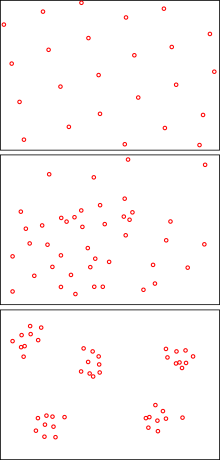Range (biology)
geographical area in which a taxon can be found
In biology, the range or distribution of a species is the geographical area or habitat where the species live.

Sometimes, when species are found in different regions at different times of year, terms such as summer range and winter range can be used. When discussing about animals, the species' natural range is often discussed.
There are at least five types of distribution patterns: